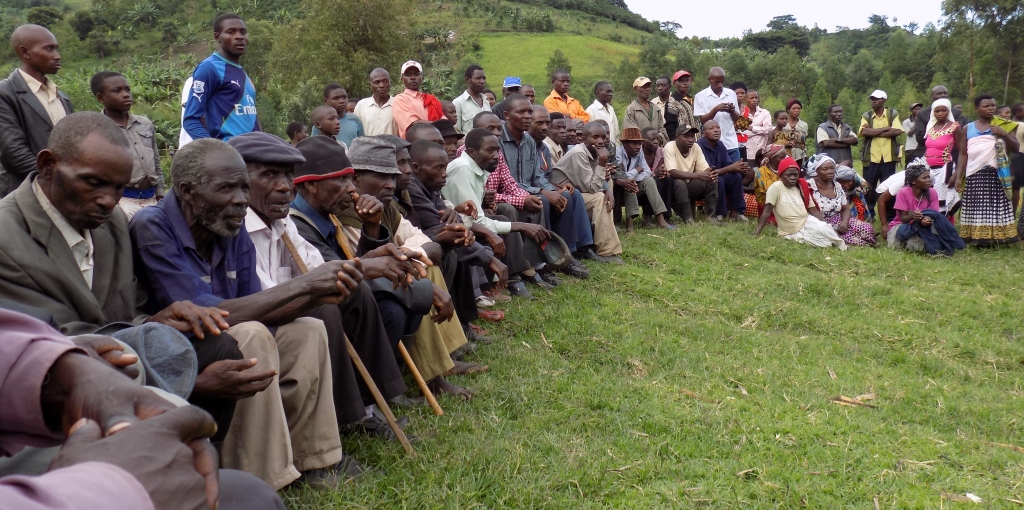
There is no better place to learn the true nature of a society than in a gathering of elders. All you have to do is sit quietly at the feet of these sages and listen. These elders have been around for a long time and they have probably learnt from those who came before them through the oral tradition. They have cunning and experience from having made their own mistakes and you assume they have earned the right to tell you how things ought to be. The problem with an oral tradition is that even if they make it up as you go, you can’t call them out.
Sitting in one such gathering of elders, I discovered a very peculiar and uncomfortable truth about my society. After the clan head had called the day’s meeting to order and explained the order of business, he invited one of the members to lay out his complaint so that the elders could resolve it. No sooner than this poor chap had started talking, than one of the more well to do (and senior elder) called a point of order. The senior’s point of order was to do with ‘tradition’ he said.
“Ammmm…” the senior elder started as he cleared his voice, “you know very well that in our custom you cannot bring a case before the elders without paying a complaint fee (‘empaabi’, he called it). Have you paid the fee?” he asked sternly. On being taken to task, the poor complainant appeared dumbstruck. He just had no rejoinder for the shrewd old sage. And believe it or not, that was the end of his complaint. He just had no money to appease the august gathering of elders that he had a case for which he needed help.
A score years later and this incident continues to bother me. What was the poor fellow’s problem? Did the senior elder (who happened to be one of my paternal grandfathers) pull a fast one on the poor chap because he had an interest in the matter at hand? Did the poor chap ever get justice? I will never know. But with time I have grown wiser to the ways and practices of my society. This is what I have learnt. Maybe I am right, maybe I am just imagining.
First and foremost, we live in a culture that does not take nicely to dissent. We are taught from youth not to question the wisdom of elders. Disagreement is a taboo and if you speak up to an elder, ‘it is interpreted as being rude and arrogant. It is called ‘looking into the mouth of the elder’. (‘Omwana anvumye’, literally translated as the child has abused me.) Second, wealth is equated with wisdom. On account of this particular grandfather of mine having been dealt a luckier hand by fate, he was assumed by all and sundry to be wiser than the poor relative. How many times do you see this phenomenon in everyday life? We live in a society, which will glamorize wealth over wisdom despite the fact the two are not perfectly correlated.
Third and perhaps more disturbing, strength is perceived as more desirable than wisdom. Have you not heard chaps who say ‘leave matters of generals to generals’? This phrase implies that because one has access to the means of violence, they will not tolerate reasoning in this particular matter! Are generals not supposed to be men of reason? But you kind of get the drift and get back to minding your own business.
If these observations hold to be true, what does this kind of culture do for national development? My ten cents is that it perpetuates a vicious cycle in which reasoning and alternative social development strategies are secondary to control of the means of violence? Such a parochial attitude provides no space for competing ideas to flourish. Culture does certainly eat any strategy for breakfast, lunch and dinner!
Samuel Sejjaaka is Country Team Leader at Abacus Business School. Twitter @samuelsejjaaka.
